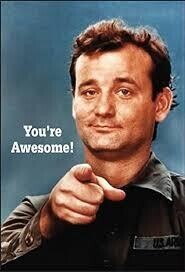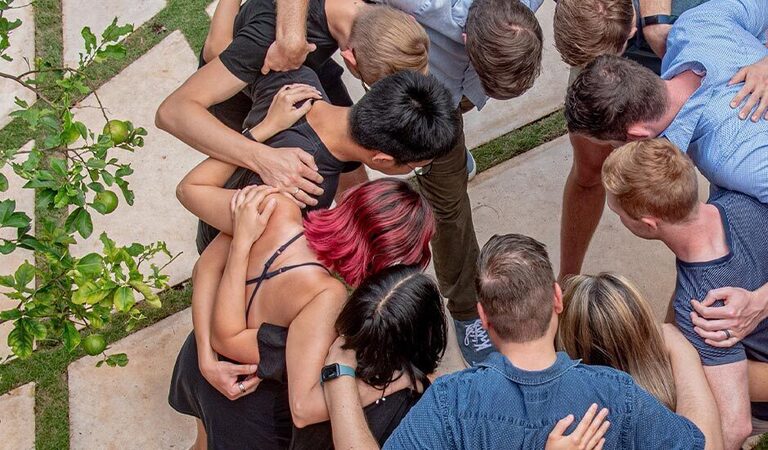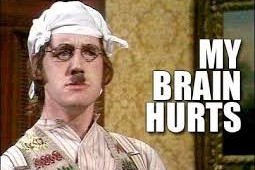
posted 24th April 2024
Intro:
I’ve always been active. I have always had a love of sports, particularly participation rather than just watching. I’m pretty sure in a previous life I was a dog as I’m always happy when:
• Chasing a ball
• Running around in a field
• Eating
Unfortunately, as life started to take its toll two out of three slipped, whilst one other accelerated. Why am I telling you this? Well, I started to notice as I got older and these habits slipped so did some other things.
In years gone by I was a keen footballer. I loved to play tennis. I love rugby union and touch rugby but as age caught up they dropped by the wayside. As my life has evolved I have become quite a keen golfer. However, golf alone was not enough.
My energy levels were noticeably lower. Although I’ve never really been a morning person per se, getting out of bed was harder. Concentration levels were dropping. My attention span wasn’t as sharp and my general quality of life wasn’t as good as I’d like. Which all took a toll on how I like to operate at work as well as outside of work.
This was not an overnight thing, it took a while to get to the point where I thought, “Hang on, this is not me” and it took even longer to say, “Let’s do something about this” but I am so glad I did.
There is an old saying, “You don’t miss what you’ve got until it’s gone” It is so true. However, as I mentioned above, it’s not an overnight thing. Your standards slip, work is busy so I’ll get to doing something about it next week. All of a sudden, next week never comes. Age does not stop for anyone so the longer you leave it, the harder it gets to climb the mountain and the mountain gets bigger to climb. So what you could once do, you may not be able to do at that level now. Well, not until you put some hard yards in and make some changes.

What have I done about it:
After realising I was unhappy with myself, I got to the enough is enough stage. I decided to do three things:
I needed help – So I enlisted the help of a personal trainer. I have been a keen gym goer for a long time but when I would go, I would end up doing the things I liked and maybe not push myself hard enough.
I wanted a new challenge – I had always wanted to learn to dance. Back in the 1990’s and 2000’s I was part of the dance music scene and loved to jump around a dance floor but I’d never learned how to dance with somebody. This I wanted to remedy so I picked Salsa! I must admit, I am now somewhat addicted. It is such good fun! There is such a welcoming community of people involved with Salsa. It’s not crazy back-breaking effort each class but it keeps me moving, challenged mentally, and the music is awesome! Plus I’ve got to meet a bunch of new people which has been a massive bonus.
I wanted to improve some habits – I decided to just tweak my diet and the timing of when I eat. I started off by reducing the amount of fizzy drinks and opted for water or squash. I am not saying I don’t have the odd can or bottle but I wanted to reduce it. That definitely helped. Food-wise, I’ve done similar, just little tweaks. Same with movement, move more. Not overreaching by punishing myself with a daily 15km run (I'm not sure that I could run 1.5km just now) but by extending my dog walks, going to salsa classes and the subsequent parties, and heading to the gym with someone I feel accountable to (I am paying him after all so I best turn up and apply myself) has made a significant impact in the short to medium term. With the evolutionary change to these habits, I have found it both sustainable and enticing to push it further.

What have I seen so far:
Work wise my facilitation is better. My ideas are better and how I execute on them has improved. My concentration levels are way better as my energy levels have increased. My time management has improved as well as how I am showing up and building relationships.
Health-wise, so far I have lost over 10kgs in 6 months. The weights I am lifting have got back to the levels of my 20s. I’m fitting into clothes again that were stuffed at the back of the drawer for too long. My sleep is so much better so I feel refreshed and less groggy during the day.
Most importantly, my zest for life is back to a level where I am now thinking about what further challenges and changes I want to bring in. All in all, a better version of me is showing up and I am keen to build on it!
Insights from others:
I reached out to a few others to get a more balanced view of what I have experienced so this does not become the world according to Matt (although one of the other folks who contributed is also called Matt). Here is what they have to say about how exercise helps them in their day-to-day roles.
Jac Hughes, Consultancy owner: Some of my best ideas have come whilst out running. It's one of the few times where I don't struggle to be present. It's genuinely like magic. Go for a run and come back with an idea.
It all sounds so easy, but the challenge is always getting out there when I can think of every excuse not to. With working from home I also believe in strength exercises to ensure I don't have the posture of someone beyond my years. I keep it simple with push and pull days focused on compound lifts. Push days consist of bench presses, strict barbell presses, and squats. Pull days are Pull-ups, deadlifts, and bent-over rows. Every so often, I'll throw in a barbell circuit to blow the cobwebs away if I don't have much time. Again, it's about letting the muscle memory of the exercises take over, which allows other ideas to enter due to not trying as hard.
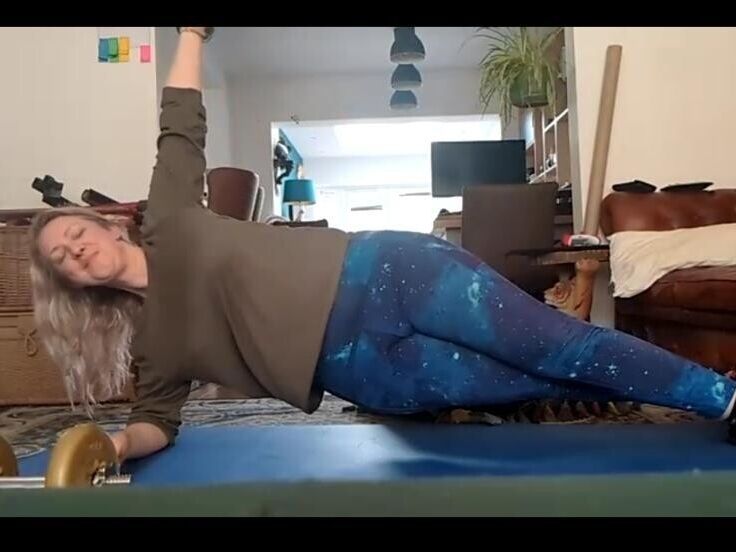
Ceri Newton-Sargunar, Systemic Behavioural Coach. I spend all day with people, so as an introvert I've always loved sports that give me a little solitude, and space to think.
Swimming, cycling, rock climbing, running - time with my thoughts and room to reflect that I don't find anywhere else. Well. Unless I'm not exercising (I've had meningitis twice, whiplash, and COVID-19, all of which made me pause for a bit). When I'm not exercising, 5 am is the time my brain has designated for bright ideas and realisations. I'd definitely rather run, and keep my sleep! Not only that, but my training in neuroscience means I also know how hugely beneficial it is to get blood, oxygen and endorphins flowing: how it helps my mood and emotional regulation, my ability to concentrate (I have ADHD so that's important), my ability to metabolise.
All of those things have long-term health implications, as does the quality of my sleep (poor sleep is linked to neurodegenerative conditions like Alzheimer's and dementia); my ADHD and meningitis means this is, personally, particularly relevant - and 5am wake-ups are even less welcome. I don't want meningitis again, so physical activity is hugely important for helping me manage my stress levels. I coach, I train, I mentor; I teach at university, I speak at conferences, I study at uni - and I'm a mum of 3 regardless of anything else. My workload is a constant balancing act and it's easy to get overwhelmed without the reassuring drumbeat of something physically demanding to help keep me on track.
I've now got a personal trainer and started with weights - nothing huge, but the combination of blood flow keeping my brain nicely oxygenated, the endorphins helping my mood, and the constant delight of achievement (I did a 42-second plank the other day. SO proud!!) give me an enormous sense of wellbeing - and then I'm happy, for the rest of the day, safe in the knowledge that a little bit of my day will always be devoted to it...
Peter Hopes, Practice Lead in the Financial Sector: Since transitioning my career to one which involves (especially with increased WFH, post Covid, and with distributed teams) more video calls and more time working in a static position at a desk (my fault, I have heard of standing desks and seen those big bouncy balls people sit on), I have learned more and more on the need to get up at some point in the day and remove myself from the screen.
Be it taking micro-breaks to hang washing, play with the hoover, potter in the garden, or more likely and frequently getting out and stretching my legs, I try to make it a point of my working day that I have a period of screen-free time (it’s even booked in as such in my diary as a recurring daily meeting). I’ve been trying to use this time to ensure that in a busy work and personal schedule I get out in some fresh air and clear my head. I would recommend it to anyone. I find that in these moments you process problems, find new ways of viewing things, remember things that you planned on doing that slipped from your mind and (and I hate myself for saying this) manage to center yourself a little. It is probably one of my most valued work tools, time to think. We increasingly rush from meeting to meeting, workshop to workshop, and call to call. When do we plan in processing time. Maybe we need more, 15 minutes every hour to process and act? Sounds pretty healthy to me.
There are other benefits too, on a Tuesday I’ve set up the ‘Tuesday runch club’, and groups of 2, 3, 4 or however many of us go for an easy paced plod around Arthurs Seat from the office in St Andrews Sq, Edinburgh. What better way to get to know your workmates in a new setting where the day-to-day of office life drifts from your mind and you learn more about the people and their other (more important) existence as a human being.
Get up, get out, clear your head, and feel better. It doesn’t need to be a run, but I’d recommend the fresh air, come rain or shine.
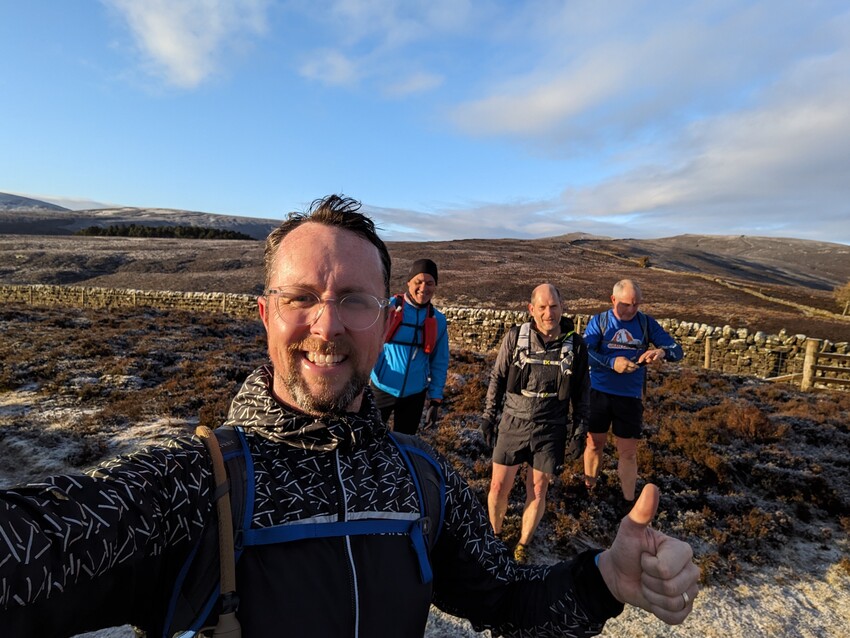

Matt Spruce, Agile Coach in the Defence Sector: Whilst I was serving in the British Army being fit was part of the “Essential criteria” required for my job, as an Agile Coach it makes absolutely no difference.
My motivation is now very different. Running gives me the opportunity to think clearly and gives me a bit of “me” time when life gets a little hectic. 5 kids, 2 dogs a cat will do that !!!
Working from home involves lots of “screen time” bouncing from meeting to meeting, crisis to crisis and as an agile coach, we are required to be reactive and creative to overcome issues and facilitate solutions. I find when I run, my mind clears and allows me to refine my thinking, it takes away the white noise and gets the creativity in gear.
I come back energised, sweaty, but energised, and after a shower, I get all over the whiteboard with my ideas.
Running is also my solace after stressful days, I like keeping fit and I have decided to enter events every year to hold myself accountable. Medals and T-shirts are also good motivators !!!
I am an average runner, but qualify as a runner because I, well…. because I run.
What the industry says:
Phil Wilkinson, Strength Lab: Back in 2001 I did my thesis on ‘how fitness affects work levels’ (I know I was ahead of the curve) the main conclusion from the studies was that productivity went up and absenteeism went down, meaning corporate profits increased as did the health of the employee.
Strength training is a sustainable and effective solution for long-term health. We can find a weak point or muscle and train it under load, building strength and balance which will protect the body against potential problems or injuries.
The clients I have who are desk-based often have similar issues - weak hip flexors, hamstrings, and glutes in the lower body and tight thoracic (between shoulder blades) in the upper body. This could lead to being uncomfortable and in pain, and a distraction from performing to your highest standard in work and life.
My recommendation to clients is two strength sessions per week. We include some cardiovascular work per workout but I advise activities such as walking, cycling, and swimming on alternate days. I encourage building a healthy balanced diet of protein, carbohydrates, and fats and trying to stay away from sugar and processed foods. I promote relaxation and reducing stress levels, which is huge especially as we get older. We’re fighting declining hormones, work stress, mortgages, raising children, and a whole host of stressors that will wreak havoc on your health. Finally, Sleep, aim to get 8 hours of sleep each night. 80% of injuries occur when individuals haven’t slept well or enough. Sleep is huge for results, staying healthy, and performance.
If you’re interested in starting strength training I’d highly recommend finding a personal trainer to teach you how to exercise correctly (we’ve all seen the gym fail reels) but also to keep you accountable and progressing. If you know how to train my advice is to keep to the basic movements and slowly progress over time
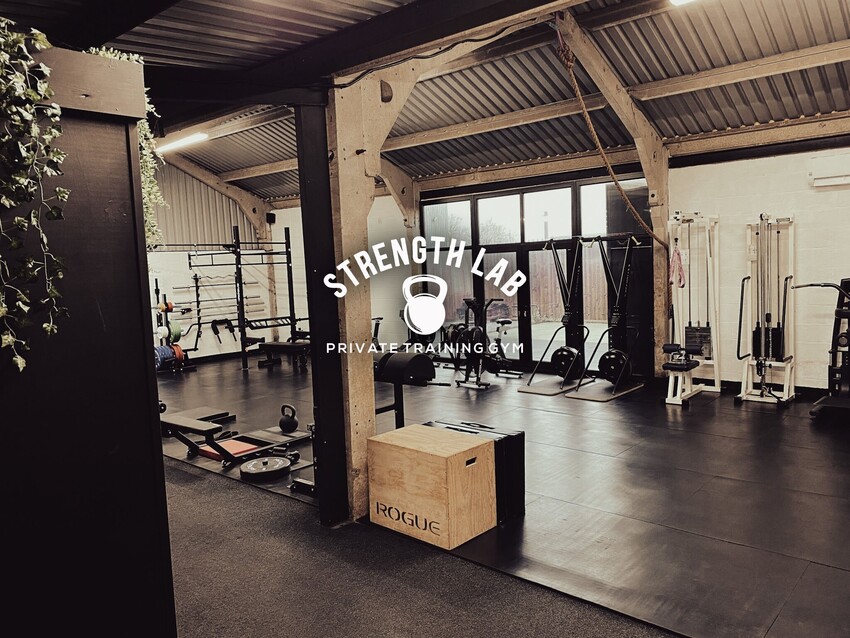

Donna Quinlen, Salsa Swansea: Before becoming a Salsa Instructor I worked on the police force in a challenging role. After a tough shift, I would often look forward to a salsa class. The instructor would ask how was my day. I would answer with, “It has been one of those days! Get me on the dance floor” and soon enough the tension and stress melted away. Not only does dance help with stress, anxiety, and tension, but it also has great benefits such as the improvement of cardiovascular fitness, muscle endurance, coordination, and cognitive health, as well as improving balance and flexibility.
What the research shows:
It’s not just these folks who think this is working for them. It works for all it seems. Any quick search on the internet will pop up great evidence to show the benefits of exercise for knowledge workers. Here is one from Harvard Health Publishing: Link is here
The tag line I took from this - Moderate-intensity exercise can help improve your thinking and memory in just six months.
A Coventry University study carried out a series of tests on 27 amateur dancers, before and after a 30-minute salsa dancing session. The results showed an improvement in all the three areas of brain function tested. Check it out here
The tagline from this one I took - We’ve seen from previous studies how salsa can benefit physical and mental health – but this was the first time we’ve shown how it could affect brain function.
Summary:
I’m not going to tell you what to do. What I will say is big bang changes come with significant risks. Maybe think about leveraging evolutionary change to manage your desired changes. Small sustainable steps are easier, more enjoyable, and more likely to stick without you overreaching and holding yourself back.
You most likely already know that exercise is good for you. What I am trying to say is as knowledge workers exercise is important for you to give the best of you.
Not making time for it in your life will most likely not just have a negative impact on your health, but most likely have a negative effect on your contribution as a knowledge worker. No one goes to work to do a bad job but are you setting yourself up for success by prioritising all work over play? If so, your work levels will most probably not reflect the best of you.
What you do, when you do, and how often you do it is your choice but choosing not to do anything will probably rob the world of the best version of you.
